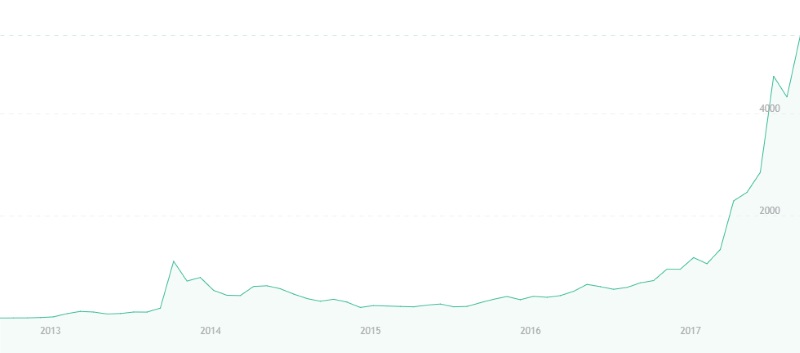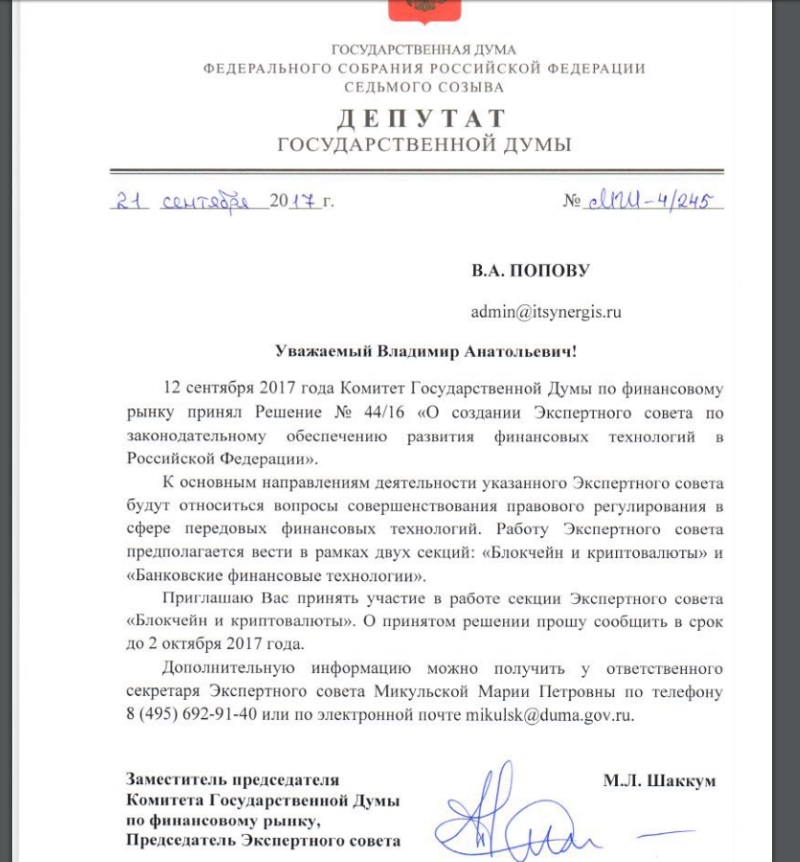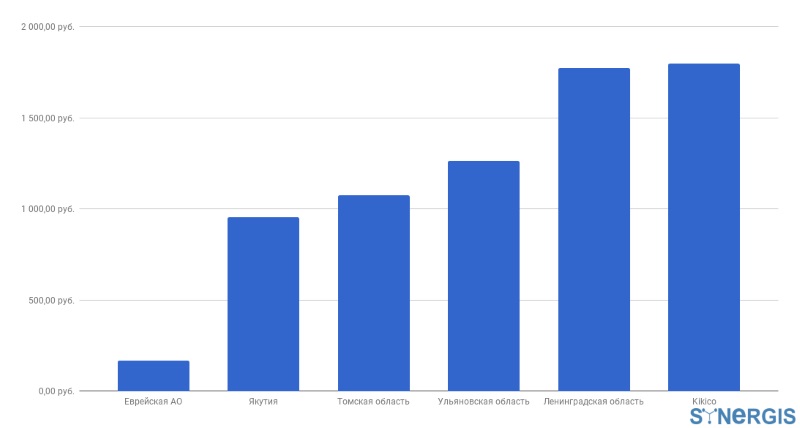Russian laws on new spheres: entertaining facts, or why a dead end is crying

Surely everyone has their favorite articles on Habré: those that can be found not even in your favorites, but easier - from memory. One of these I personally have is this: about closing LibertyReserve .
First of all, because I’m remembering about it recently, especially, all the time when people talk to me about banning cryptocurrency, ICO, blockchain projects, VPN, TOR, etc. Judge for yourself:
- In May 2013, the largest (!) Centralized payment system (!!) payment system was closed: the article “Forward after closing LibertyReserve the following Bitcoin?” Immediately appears in Forbes
- In April 2013 - March 2014, the largest crypto-exchange at that time begins its unclean operations and closes: on April 15, 2014, the exchange closes. Moreover, during this period there were quite a few hacks related to btc projects. And it would seem that the discrediting of p2p systems has reached its apogee ...
- But let's look at the chart below:

')
Now that pump seems insignificant, but at that time it was just a huge jerk.
What is it for?
To the fact that a state, whether in the USA or Russia, China or Bangladesh, is always wrong when it considers that direct bans can solve any problem: as if cutting the Gordian knot.
At least that's what I see in recent years in the Russian Federation:
- The law on the prohibition of TOR and other p2p networks is absurd, which ultimately leads to at least two directions: the development of even more complex Dark Side symbiosis than terminals + anonymous sim cards + speed on the one hand; on the other hand, the generation is no longer decentralized, but distributed systems of the deep Internet, let's say, through the same blockchain projects. Therefore, you need to learn to manage: otherwise the control zone will become inaccessible.
- Huge layers of the economy after state intervention, or, what is the same thing, monopolies, lead to stagnation in them, and more often - the decline of all the main indicators: I can find in my file about e-money, e-commerce, I think that soon it will be commodity aggregators . In addition, we should not forget the small business as a whole: in the summer of 2017, the small business was supposedly more. But only on numbers: in fact it was the optimization of big ones , and in 2017, the law on online cash desks enters the second stage and the norms contained in it will hit those who are used to working under the simplified system (ENDV, patents) .
- Finally, but not least, very often the state apparatus is so much unable to understand the phenomenon, which does everything to ignore such a phenomenon or immediately taboo it. In either case, it turns out badly. Consider the specific example.
A brief digression looks like this (more details can be found here ):
- in 2014, the Central Bank of Infisysm said that “surrogates are prohibited”, which means what surrogates are, etc. - no one understood, and could not understand: there was no terminology and norms with sanctions;
- in 2015, the Ministry of Finance decided to plant everyone: at first they decided that it was up to 4 years, then - right up to 7 (closer to 2016);
- in 2016, the famous thesis appears: “we are for the blockchain, but against cryptovalues”;
- in 2017, we suddenly decided to “lead the crypto-revolution”;
- in 2017 there is a new information of the Central Bank, confirming the theses of 2014;
- in 2017 there is a request of the State Duma of the Russian Federation to develop a law on the crypto-sphere.
And all against the background of the actions of a number of expert groups: the one that is headed by E. Sidorenko, the expert council at the State Duma of the Russian Federation , etc. That is, for three years the following was done: everyone and everything was blamed, first of all - by the speech of the Head of the Central Bank of the Russian Federation , but nothing was done. Absolutely - nothing. In addition to the allegations that something is done.

At the same time, our budget, as is well known, has a huge gap, called “underfunding”. There is a reasonable question: "where is the logic?". Judge for yourself: the ICO market is already close to $ 2,000,000,000 - and this is only the beginning, because The infusion of some decent amount began quite recently. If the Russian Federation had made an adequate tax regime, declared protection to investors and, most importantly, founders, would have refused an incomprehensible position on ICO , then not all, but at least Russian projects with the primary placement of tokens could leave quite good working capital in the low-liquidity budget of the country. To make the figures more tangible, let's open the summary table by region of the Russian Federation . Or look at the chart below.

But besides this there are after all other monetized directions:
- Mining Dividing it into professional and “home” (say, by capacity) and everything — there will be a complete analogy with hosting, when I don’t owe anything to anyone for my personal, but for prom. the scale - even very much, and more special permissions go plus.
- Labor market Programmers, testers, lawyers, economists and accountants, designers, layout designers ... And many more people of various specialties are involved in the blockchain industry. Why take such a large and promising market from the state budget?
- Investors and founders from abroad : of course, here and now no one rushes into the Russian economy to pour in. Fear. But since such ambiguous projects as ZrCoin, Kolionovo, SandCoin and a number of others have attracted attention, why not make a bet on this? Real money, even in a virtual environment, is always an opportunity to put money into circulation.
I can continue, but the fact is that today we ourselves are depriving ourselves of liquidity, additional deposits, new jobs and, most importantly, development prospects: the crypto market is now at its peak - less than 200,000,000,000 dollars. And this is for some one and a half years of intensive development. Next - trillions are waiting for us, because institutional investors will come, say, from Japan.
Everyone is afraid of the consequences of VPN / TOR, the development of Internet aggregators, the ICO bubble ... But the problem is that all this will still develop: simply with ours or without our participation.
Say, what's the point of fear of another overheated market? Isn't it easier to introduce free financial and, if you like, blockchain literacy courses throughout the country? Immediately, those who are trying to teach will disappear without knowing what, the main thing that teaches. Secondly, an intelligent person will never be just like that, without an elementary hedge, “climb” into high-risk projects.
Recently, for example, I came across several taxi drivers who boldly and zealously talked about Bitcoin: that all this without state support is a pyramid and nothing more. It seems to be nothing special. The only problem is that all their promises ended up in a tirade about how to make more and faster money, but in such a way that it is not dangerous. In my opinion, these “weak hands” are exactly what the market never needs. It is necessary for speculators to manipulate them.
Therefore, my summary on the innovations of the “Spring Law” format, the law on prohibition ... (which you will choose yourself) is simple:
- The prohibitive policy has already led Russia to where we are - to the camp of constantly catching-up countries in the field of IT. If we do not learn how to apply point regulation, without violating every time the principles laid down in the Constitution, the Codes, etc., we can never make the necessary leap forward.
- Only free and universal education can solve the problems of the proper use of this or that technology: no restrictions and artificial interventions will do this better. Principles of personal hygiene in my opinion - a great example.
- Finally, the hasty adoption of laws led to the fact that at the moment when the State Duma of the Russian Federation, the Federation Council of the Russian Federation and other structures are faced with innovations, they cannot form an adequate understanding to regulate these phenomena, which in turn leads to the inactivity of the regulatory framework on the other hand, on the other hand, its permanent alteration, which does not ensure the stability of financial and economic relations, but, on the contrary, devaluates it as one of the foundations of business.
Of course, this is not all that I would like to say, but everything that I would like to convey in connection with the latest statements by the President, the Head of the Central Bank, the Ministry of Finance and a number of other state structures.
PS It's funny that at the time of this writing, the position of I. Shuvalov appeared :
We still do not know whether it is harmful or not, but we are already striving to ban and close. If our place is among the advanced countries, and we want to succeed in this competitive race, and even create better standards of life than our partners, whom we look at, their social economic standards, we must be a little braver
The question is probably that there is simply no one to be bolder?
Source: https://habr.com/ru/post/340368/
All Articles